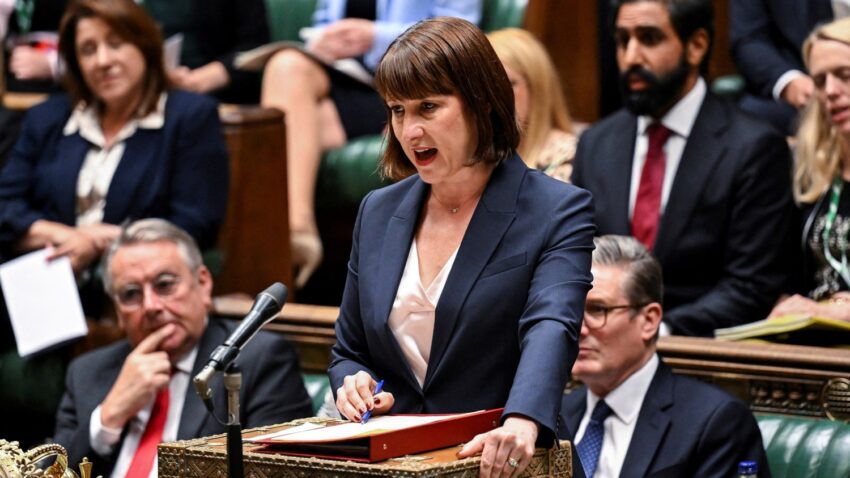
As budget day looms there are plenty of things to consider for the hospitality and leisure sector, from the mooted changes to capital gains tax, to the much desired business rates reform.
Here, Isabelle Shepherd, Director, haysmacintyre looks at the impact announcements could have.
Capital gains tax
The possibility of increases in capital gains tax has been making the headlines for weeks now. Changes ranging from a small increase to being brought in line with the income tax rate of 45% have been mooted. The impact this could have on the hospitality sector should not be underestimated. The new and exciting brands that we see coming to market, that could be the ‘next big thing’, are typically a result of the entrepreneurs who take a punt on an idea. They often risk savings and take very little salary in the early days of their business. Then if, and that’s a big if, the idea becomes a success and they sell, they benefit from paying lower rates of capital gains tax than they would have on income tax.
While the need to raise taxes is understandable, there is a risk that increasing the rate of capital gains tax reduces the incentive for newer and independent operators to start new businesses. This in turn reduces the diversity of the sector, and the variety of sites on offer for customers as well as the impact on the high street.
Business rates reform
The sector has been absorbing more than its fair share of business rates for years now. There is rates relief in place for hospitality at the moment, which is capped at £110,000, but this is due to expire on 31 March 2025. The current system favours those not on the high street, such as online retailers that use warehouse space outside of city centres, and is almost certainly a factor in the decline of high streets. For the past couple of years hospitality has been reliant on annual support packages to remove an element of the unfair system, that while beneficial, provide little certainty as to the future and cash-flow planning.
When the current package expires on 1 April 2025, the proportionate impact will be the most severe for smaller, independent businesses and could be as extreme as quadrupling their rates from £11,000 to £44,000 per year. It is these businesses that are typically struggling to make a profit at the moment, as trade is impacted by the cost-of-living crisis, and costs continue to rise, most notably the April 2024 National Minimum Wage increase, with another rise looking likely in April 2025.
It is key the government prioritise business rates reform as they set out in their manifesto, to avoid further closures of small and independent hospitality businesses that are often at the heart of neighbourhoods.
VAT
The sector has long been campaigning for reduced rates of VAT to allow operators to better compete against shops and supermarkets and align the sector with European rivals. Despite the efforts of UK Hospitality in pushing this, and many industry leaders being very vocal on the topic, the government has stayed quiet, leaving many to assume that reform in this area is not on the agenda for 30 October. The only thing confirmed so far is that VAT will not be increasing. I am sure there are many still holding out hope here, especially those who are struggling to make ends meet.
Employer’s national insurance
It has been confirmed that employee national insurance will not be rising, leading to speculation that employer’s national insurance could be a target to raise revenue through the budget. There are a couple of options on how this could be actioned, from simply increasing the rate, to including pension contributions within the scope of employer’s national insurance.
If this is announced it is going to further squeeze the cashflow and reserves of businesses struggling to make ends meet in the wake of a cost-of-living crisis. Including pensions within the scope of national insurance would impact the benefit of salary sacrifice schemes, which have been a popular employee incentive in recent years. When these schemes are set up, the employer often passes all or some of the national insurance savings they make to the employee. Naturally, if the savings were stopped and national insurance was to be charged, this benefit would be cut back.
Employment rights
While not something in the budget, the Employment Rights Bill published on 10 October 2024 should not be ignored. The hospitality sector makes use of zero-hour contracts and many people on them enjoy the flexibility they offer, allowing their personal lifestyle choices to be matched with business demand. I am sure no one disagrees with the ban on those that are ‘exploitative’, but how the rules around zero hour contracts are implemented is going to be very important for the hospitality sector which needs an element of flexibility due to seasonality and shift patterns. Mandating hours and requiring too much notice over shift changes could be detrimental to the sector, as it would result in further payroll costs increases which sadly could see many operators forced to close their doors.
There is lots to think about, not just for hospitality operators but for all businesses – though given the challenges that have buffeted hospitality in recent years the concerns may be particularly acute for business operators in this sector. Hopefully whatever is announced supports the sector, which contributes a huge amount to the economy and brings joy to the population. If nothing else, it will at least give some certainty over what is to come.